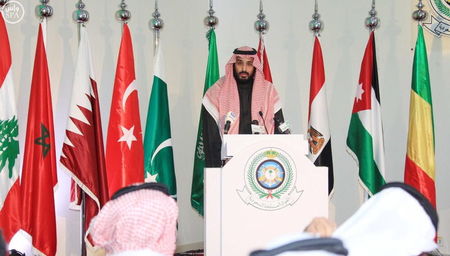 Petro kingdom at risk? 2016's Mideast power matrix and the Chinese definition
Petro kingdom at risk? 2016's Mideast power matrix and the Chinese definition
Saudi Arabia Budget Deficit Swells On Oil Price Fall
 Petro kingdom at risk? 2016's Mideast power matrix and the Chinese definition
Petro kingdom at risk? 2016's Mideast power matrix and the Chinese definition
Dillon Hess
|
08 January, 2016, 17:07
Recommended
- IDCS 1426 Galaxy cluster detected
- 'Star Wars' writer reveals Han Solo spinoff details
- Signet Jewelers Shines On Strong Holiday Sales, Guidance
- Actor Pays Another Sweet Tribute to Paul Walker at People's Choice Awards
- NHS Choir beats Justin Bieber to UK X-mas no.1
- Beyonce Performs with Channing Tatum on 'Lip Sync Battle' (Full Video)
- Man dies following car-pedestrian collision
- LB coach leaves 49ers, returns to role at USC
- Wayne Rogers, Trapper John on M.A.S.H., dies at 82
- Government to provide £50m for Compound Semiconductor Catapult
- British Columbia struck by moderate quake
- Skills, tricks and goals of new Leeds United loanee Carayol
- Car Sales In U.S. Set New Record
- 'The Force Awakens' to take domestic box office title today
- Rainbow Six Siege patch 1.2 rolls out today, tick rates blazing
Trending Now
Dont Miss
Popular destinations
- Best Non Gamstop Casino
- Non Gamstop Sites
- Casino Not On Gamstop
- Casino Not On Gamstop
- Casino Online Non Aams
- Non Gamstop Casinos
- Sites Not On Gamstop
- Non Gamstop Casinos Uk
- Sites Not On Gamstop
- Non Gamstop Betting Sites
- Best Online Casino Canada
- Online Casinos Not On Gamstop
- オンラインカジノ 一覧
- Mejores Paginas De Poker
- Gambling Sites Not On Gamstop
- Casinos Not On Gamstop
- UK Casinos Not On Gamstop
- Non Gamstop Casino Sites UK
- Slots Not On Gamstop
- UK Online Casinos Not On Gamstop
- UK Casino Not On Gamstop
- Meilleur Casino En Ligne France
- Meilleur Casino En Ligne
- Casino Not On Gamstop
- Bookmaker Not On Gamstop
- Casino Non Aams
- Meilleur Casino En Ligne Belgique
- Jeux Casino En Ligne
- Casino Online Esteri
- カジノ 仮想通貨
- Casino Live
- I Migliori Siti Poker Online
- Casino En Ligne Avis
- Migliori Casino Non Aams
- 코인카지노
- Casino En Ligne Français
- Nouveaux Casino En Ligne
- Casino En Ligne France
- Casino En Ligne France
